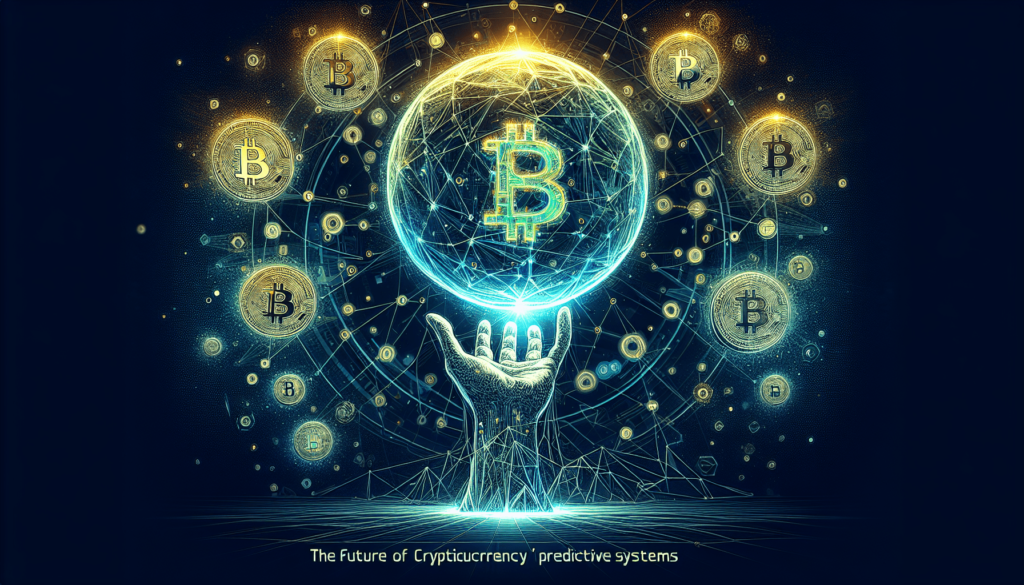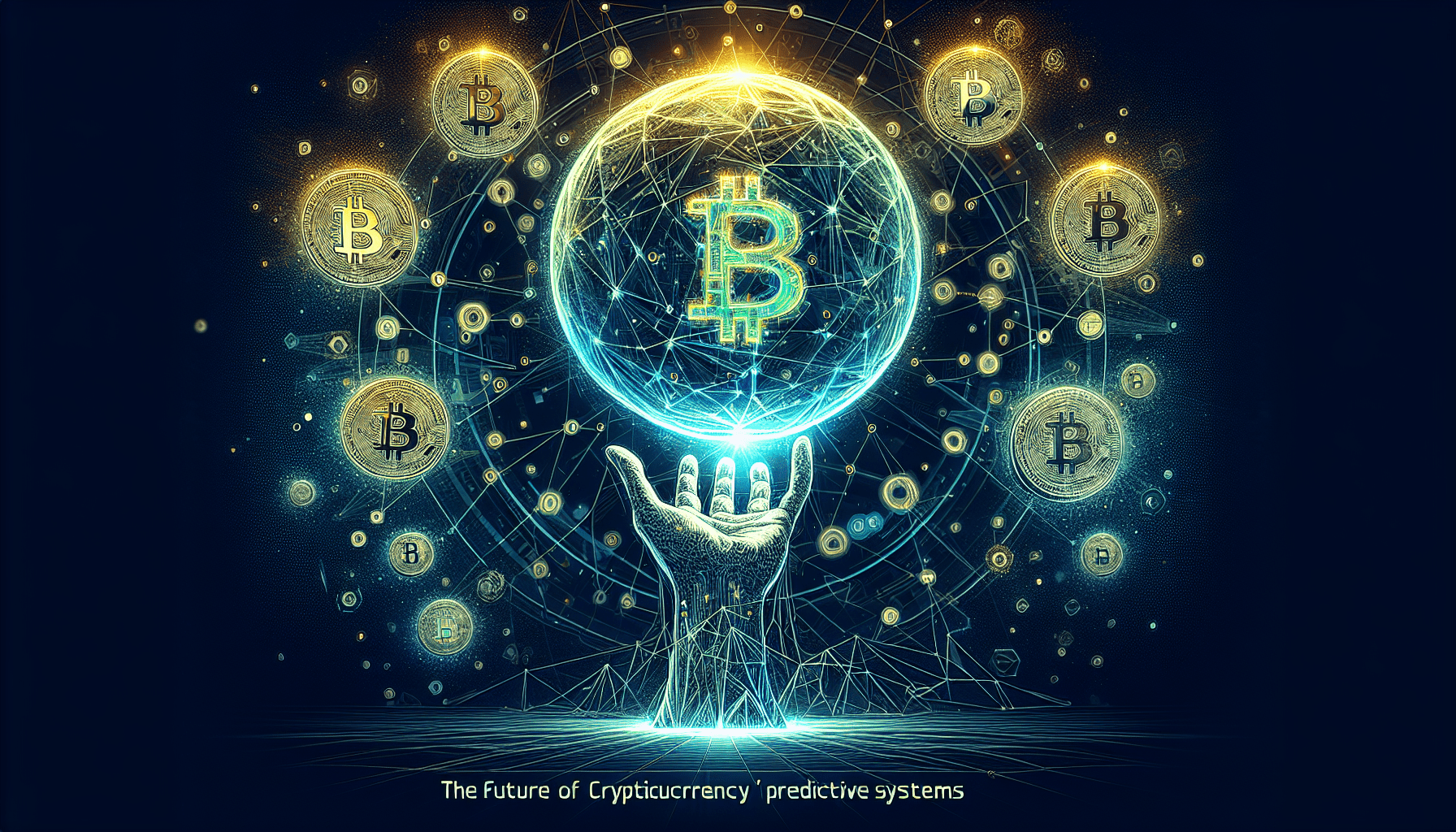Have you ever wondered what makes the cryptocurrency ecosystem tick, especially when it comes to connectivity with the real world? If so, the answer lies in the fascinating role of oracles within this digital realm. By serving as bridges between blockchain networks and external data, oracles reveal an often overlooked but crucial aspect of the crypto industry. Their potential is vast, offering a powerful blend of opportunity and innovation that not only enhances crypto applications but extends into various other sectors as well.
Introduction to Oracles in the Crypto Ecosystem
Oracles essentially act as intermediaries or gateways, providing blockchain with access to data from the outside world. This function is essential because blockchains on their own are inherently self-contained systems, lacking a mechanism to directly access external data. Without oracles, blockchains would remain isolated networks, unable to interact dynamically with real-world events and information.
Imagine smart contracts, which are self-executing contracts based on predetermined conditions. To operate effectively, they often require data input from the external environment—such as stock prices, weather conditions, or the outcome of a sporting event. Oracles fetch this data, bridging the gap between crypto ledgers and other data sources.
Types of Oracles and Their Functions
Oracles come in various flavors, each serving unique purposes depending on the requirements of a blockchain or smart contract. Understanding these different types can provide a clearer vision of how they enhance the crypto ecosystem.
Software Oracles
Software oracles connect blockchain with online data sources. These may include APIs, web servers, or databases that provide real-time data such as price feeds, shipping updates, or data from Internet of Things (IoT) devices. By fetching this information, software oracles enable dynamic smart contracts that can execute when specific online events occur.
Hardware Oracles
Hardware oracles interact with physical objects in the real world. They aggregate data from external devices like sensors, RFID tags, or smart devices. For example, a hardware oracle might verify that a shipping container has arrived at a specific location by processing data from a GPS sensor. This type of oracle allows blockchain applications to incorporate data from physical environments into their operations.
Inbound and Outbound Oracles
Inbound oracles bring external data into the blockchain environment. They supply the necessary inputs to trigger smart contracts. An example could be a weather oracle providing data to a blockchain-based insurance contract for farmers.
Outbound oracles, on the other hand, send data from the blockchain to external systems. This could facilitate a blockchain transaction initiating a real-world action, such as unlocking a smart lock once a payment has been verified.
Consensus-Based Oracles
Consensus-based oracles aggregate data from multiple sources to ensure its accuracy and reliability. Operating on the premise that data verified by multiple parties is more trustworthy, these oracles reduce the risk of incorrect information affecting blockchain operations. For instance, in the context of financial markets, consensus-based oracles might consolidate stock prices from ten different sources before feeding them into a smart contract.
Human Oracles
In some cases, human intervention is necessary to provide reliable data. Human oracles participate actively in verifying the authenticity of information, such as legal documents or art pieces. These verified inputs are then used by smart contracts to execute correctly under predefined conditions.

The Role of Oracles in Smart Contracts
Without oracles, smart contracts would be confined to the predefined data that exists within a blockchain. Oracles enable them to interact with the real world, greatly expanding their utility across many sectors.
Case Study: Decentralized Finance (DeFi)
In the world of decentralized finance, oracles play an indispensable role by supplying price feeds to DeFi platforms. These platforms rely on accurate and timely data to set lending and borrowing rates, validate collateral, and manage risk. For example, platforms like Aave and Compound use oracles to fetch cryptocurrency prices, ensuring that asset valuations remain accurate for lending protocols.
Case Study: Supply Chain Management
Oracles are enhancing supply chain efficiency by providing real-time tracking and verification. For instance, in a supply chain smart contract, an oracle can track the temperature history of perishable goods during transportation. This data ensures that the goods are stored correctly, triggering automated contract terms related to the quality and condition upon delivery.
Case Study: Insurance
The insurance sector benefits from oracles by automating claims and payouts. For instance, parametric insurance policies for crops rely on weather data provided by oracles. If a defined weather event, like drought, occurs, the oracle delivers the relevant data to the smart contract, which then triggers an automatic payout to the insured party.
Oracles and Decentralization
While oracles offer immense benefits, they also pose some challenges, primarily regarding decentralization. A single point of failure or the risk of data manipulation by centralized oracles could undermine the trustless nature of blockchain technology. Hence, the decentralization of oracle networks is crucial to maintaining blockchain’s foundational principles.
Projects like Chainlink are pioneering decentralized oracle networks (DONs). These networks distribute the task of fetching and verifying data across numerous nodes, eliminating the reliance on a single oracle source. By doing so, they ensure data integrity and enhance the security of smart contract operations.

The Potential of Oracles in Cross-Chain Interoperability
Cross-chain interoperability is a significant area where oracles exhibit their transformative potential. As more blockchain projects emerge, the ability to seamlessly interact across different blockchain networks becomes essential. Oracles facilitate this interconnectivity by acting as conduits for data between disparate systems.
Facilitating Token Swaps
Oracles enable smart contracts to execute token swaps between different blockchains. For example, an oracle could verify asset balances on two separate chains, allowing users to swap tokens securely without an intermediary.
Enabling Cross-Chain DeFi Applications
Oracles can access and share data across different DeFi platforms, unlocking new financial products. By integrating data from multiple chains, oracles help create a unified financial ecosystem where assets and information flow freely.
Oracles in Emerging Technologies
The incorporation of oracles into emerging technologies showcases their adaptability and widespread application potential.
Internet of Things (IoT)
Oracles can refine IoT networks by incorporating smart contracts, enabling automation and more refined control over IoT devices. For example, smart heating systems using IoT devices can leverage oracles to optimize energy usage based on weather data, reducing costs while maintaining comfort.
Augmented Reality (AR) and Virtual Reality (VR)
Blockchain-based AR and VR applications gain enhanced functionality through oracles. Interactive platforms can use real-world data provided by oracles to create dynamic environments that respond to actual events or conditions.
Addressing Security Concerns
The integration of oracles introduces potential risks such as data manipulation, hacking, or incorrect data entry. Understanding these vulnerabilities is crucial for developing robust oracle mechanisms.
Data Authenticity and Integrity
Ensuring the data that oracles provide is authentic and unaltered is vital. By utilizing cryptographic proofs, immutable logs, and multiple verification sources, the integrity of oracle-fed data is preserved, preventing malicious alterations.
Protection Against Manipulation
Decentralized oracle networks, as mentioned previously, enhance security through redundancy and diversity. By spreading risk across multiple nodes, the attack surface decreases significantly, making it harder for adversaries to compromise the network.
Smart Contract Security
It’s also important to emphasize that while oracles supply data, the smart contracts themselves must be soundly designed to prevent vulnerabilities. Applying rigorous testing and implementing security measures can safeguard against unforeseen issues in automated processes.
The Future of Crypto Oracles
As the crypto space evolves, so too will the role and capabilities of oracles. With blockchain technology continually expanding across industries, the future of oracles seems promising, enhancing digital ecosystems in ever more efficient and innovative ways.
Evolution of Oracle Solutions
Future oracle solutions will likely see increased sophistication, with better scalability, reduced latency, and enhanced integration across multiple platforms and devices. These improvements will help expand the scope and efficiency of smart contracts globally.
Expansion into Various Industries
Beyond traditional financial applications, oracles will permeate many more sectors, from healthcare to transportation, affecting and streamlining operations by providing reliable data connections.
Government and Public Sector Applications
Governments could utilize oracles for transparent, automated processes such as electoral voting systems or public records management, minimizing errors and enhancing public trust in digital governance.
Educational Sector
The educational landscape might also benefit from oracles by integrating credential verification and learning management systems into blockchain networks, ensuring authenticity and accountability in student achievements and records.
Challenges and Considerations
Despite their potential, oracles face challenges that need addressing for them to realize their full worth in blockchain applications.
Legal and Ethical Implications
As oracles handle vast amounts of sensitive and sometimes personal data, ethical and legal considerations become paramount. It’s important to establish data privacy laws that govern oracle operations, ensuring compliance without stifiling innovation.
Cost and Complexity
Implementing oracle solutions can be resource-intensive, both in terms of cost and technological complexity. Organizations will need to weigh these factors carefully, balancing investment with potential return.
User Education and Adoption
Increasing the adoption of oracle solutions relies not only on technical implementation but also on user understanding. By educating stakeholders on the value and utility of oracles, broader acceptance and integration can be achieved.
Conclusion
The potential of crypto in oracles is boundless, weaving together technology and functionality to create a more interconnected and efficient digital ecosystem. By seamlessly integrating real-world data with blockchain applications, oracles enhance the scope and usability of crypto networks across industries. As advancements continue, oracles are set to revolutionize how we process and leverage information, unlocking new dimensions of possibility within the blockchain sphere. By understanding their current use and potential, you can better appreciate how oracles might shape the future of technology and innovation.

